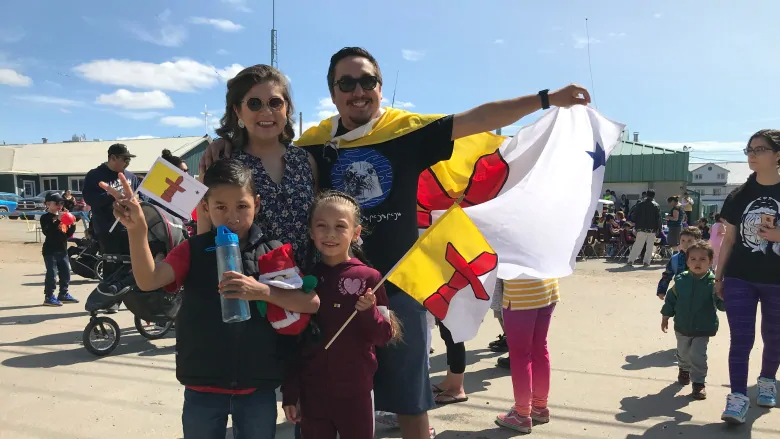Residents reflect on Nunavut Day on how far northern Canadian territory has come

People in Nunavut are celebrating the territory’s 22nd birthday on Friday.
Nunavut Day celebrates Parliament passing the Nunavut Land Claims Agreement Act.
The agreement went into effect on July 9, 1993, and it’s celebrated as a milestone on the road to Nunavut becoming a territory — though that didn’t happen officially until April 1, 1999.
“It’s been another hard year, fighting the pandemic and balancing our many priorities,” wrote Premier Joe Savikataaq in a statement on Friday.
“Nunavut is the most beautiful place on earth, with the most vibrant people, languages and cultures. I’m full of pride today and every day,” he wrote.
Youth concerns
CBC spoke with people in Iqaluit about what Nunavut means to them, and how they feel the territory has progressed.
Youth advocate Rachel Michael in Iqaluit says there’s much to celebrate, but says that young people are concerned the territory isn’t living up to all its promises.
She says Inuit have been calling on the Nunavut government for change, but have not been seeing many results. Now, youth are left to come up with their own plans for dealing with long-standing issues like mental health.
“Inuit have been repeating themselves over and over. Still, to this day, we hear Inuit wanting a lot of the same things they wanted back when Nunavut was created,” Michael said.
“It’s exciting to see young people starting to really take ownership of our power and our leadership skills but there’s still lots to be done for sure.”
Housing, food security ongoing issues
Other citizens, like Anguti Johnston, remind people that Nunavut is very new. He says Nunavut’s leaders sacrificed a lot, worked hard and in the future, the results will show.
This, he says, is something Inuit should be proud of.
“I’m aware that our government has always worked hard for our territory,” Johnston said.
“Yes, the visions they had for Inuit in Nunavut around 1967, are finally starting to appear now. Our leaders have worked very hard and I believe things can be done faster but I am also OK with the progress now.”
Meanwhile, Jukeepa Akpalialuk told CBC News in Inuktitut that she’s happy Inuit came together to build the territory of Nunavut, but thinks it has been progressing slowly and many challenges remain in place.
“We’re struggling with shortage of housing, we’re supposed to have enough housing for everyone,” Akpalialuk said.
“And, we are facing expensive food prices in Nunavut, many of us go hungry because we can’t afford it, we can’t even get our own traditional food because it’s so expensive, that’s how I see it.”
-With files from Teresa Qiatsuq
Related stories from around the North:
Canada: Mary Simon being named as Canada’s next Governor General has national & global significance, say Inuit leaders, Eye on the Arctic
Finland: Miners hunting for metals to battery cars threaten Finland’s Sámi reindeer herders’ homeland, The Independent Barents Observer
Norway: The Arctic railway: Building a future or destroying a culture?, Eye on the Arctic
Russia: Indigenous Peoples call on Nornickel’s global partners to demand environmental action, The Independent Barents Observer
United States: Indigenous groups in Alaska welcome Biden’s bid to protect critical Bering Sea area, Radio Canada International



